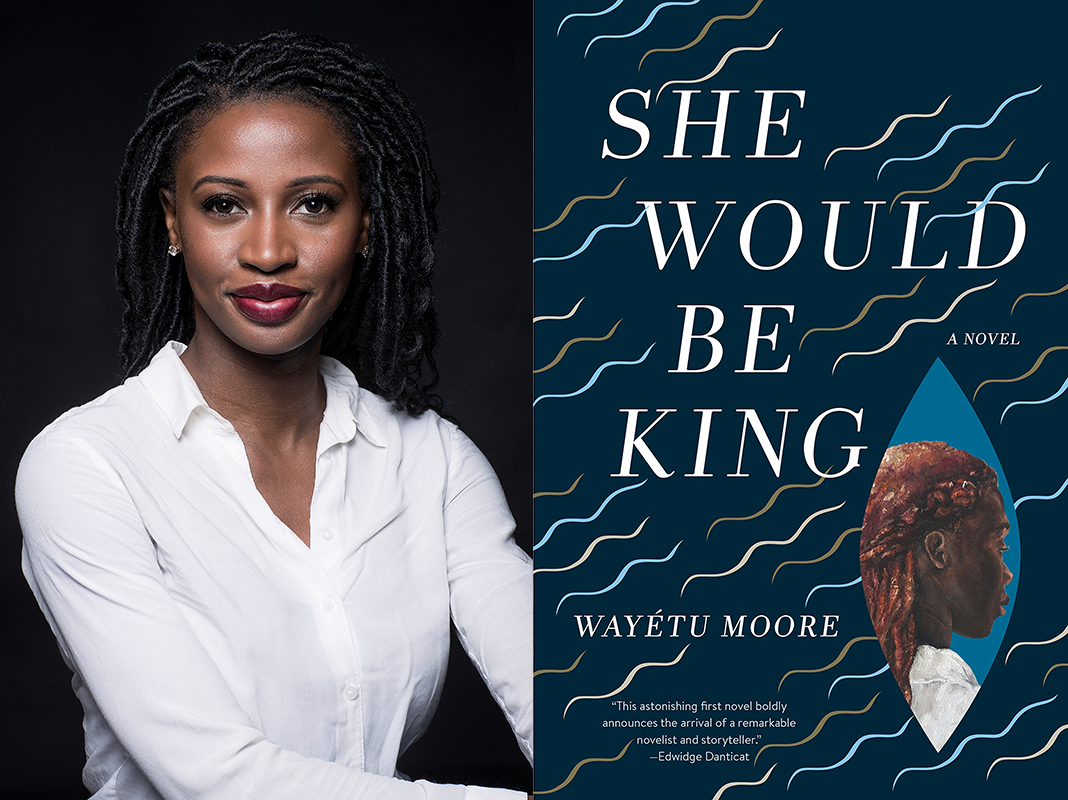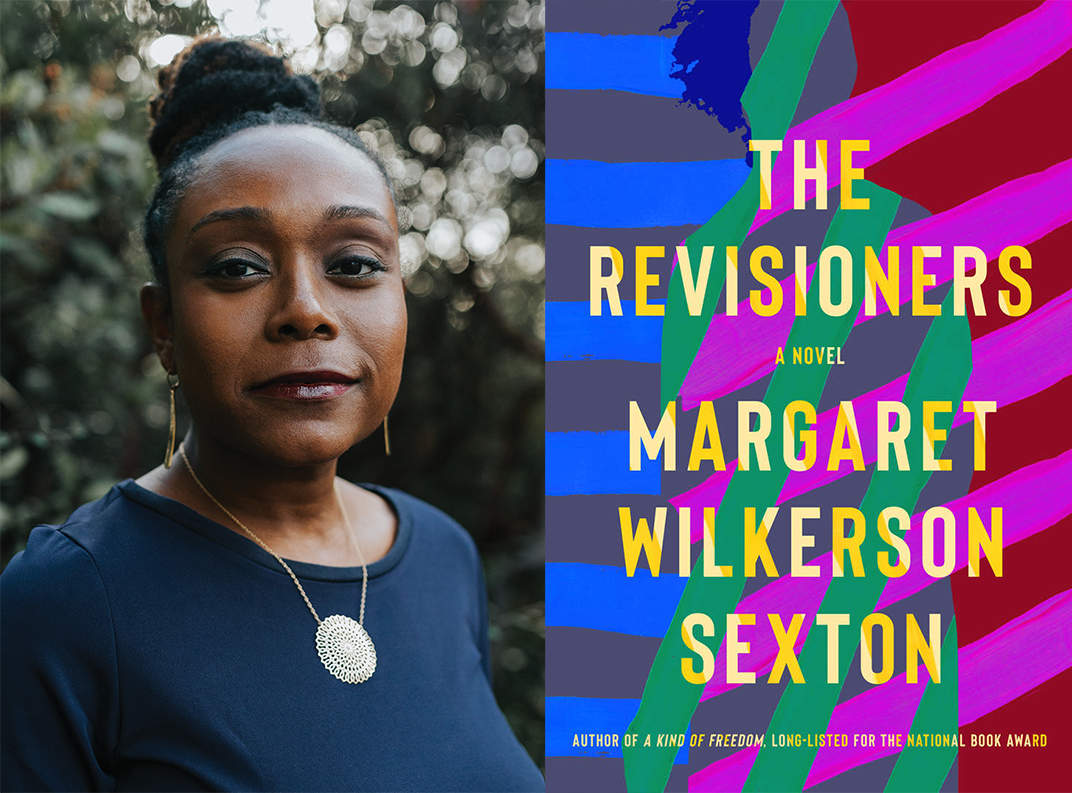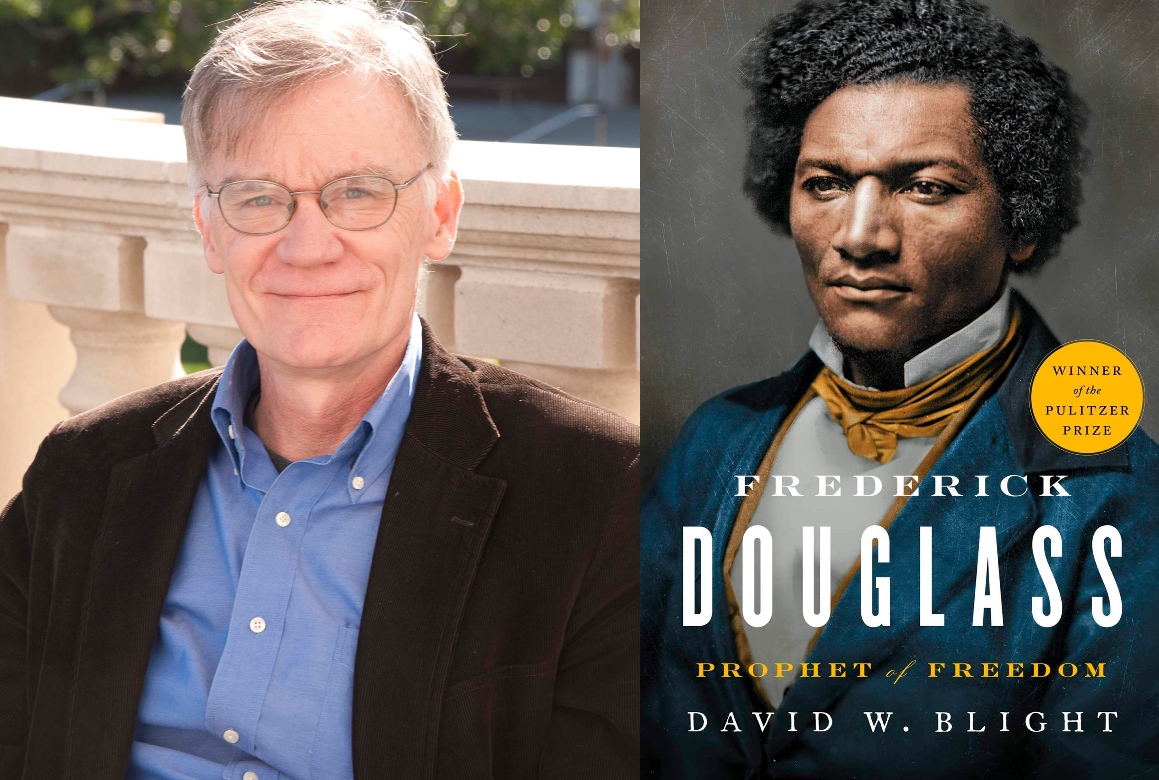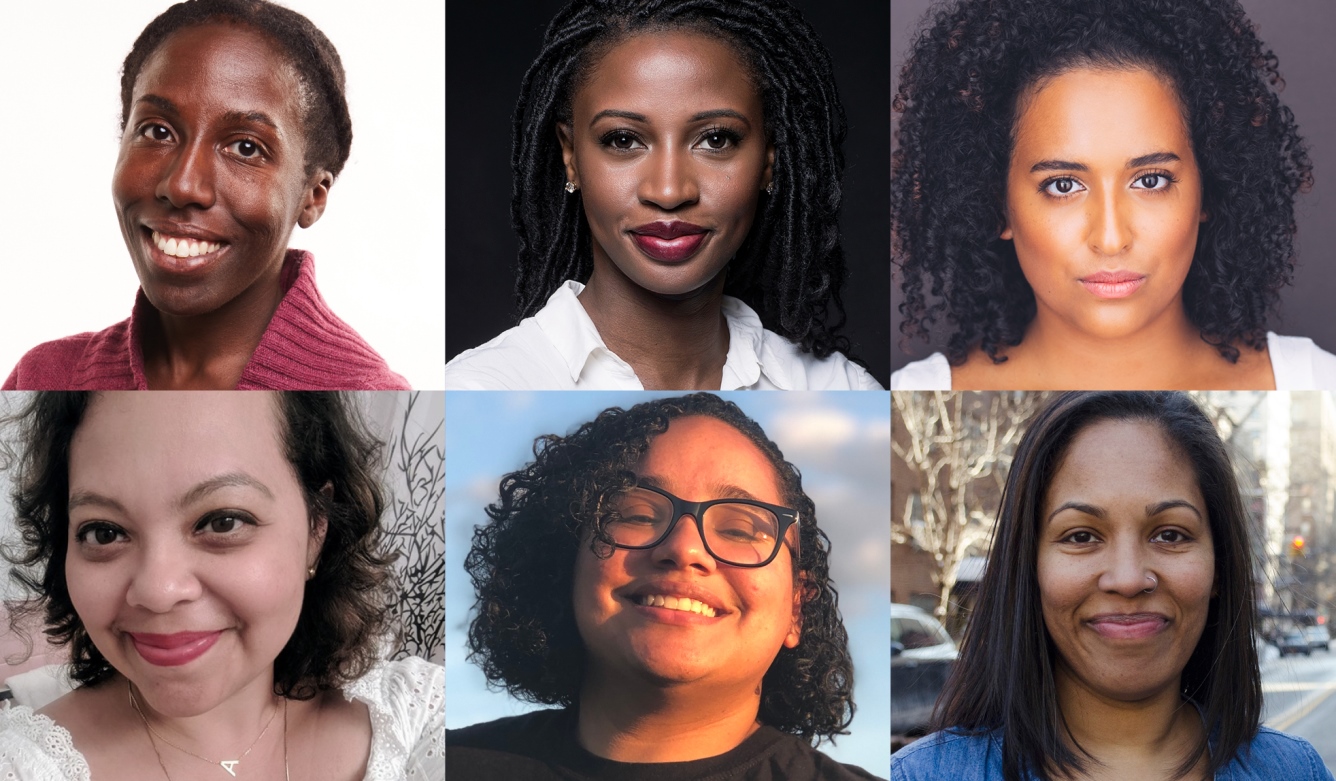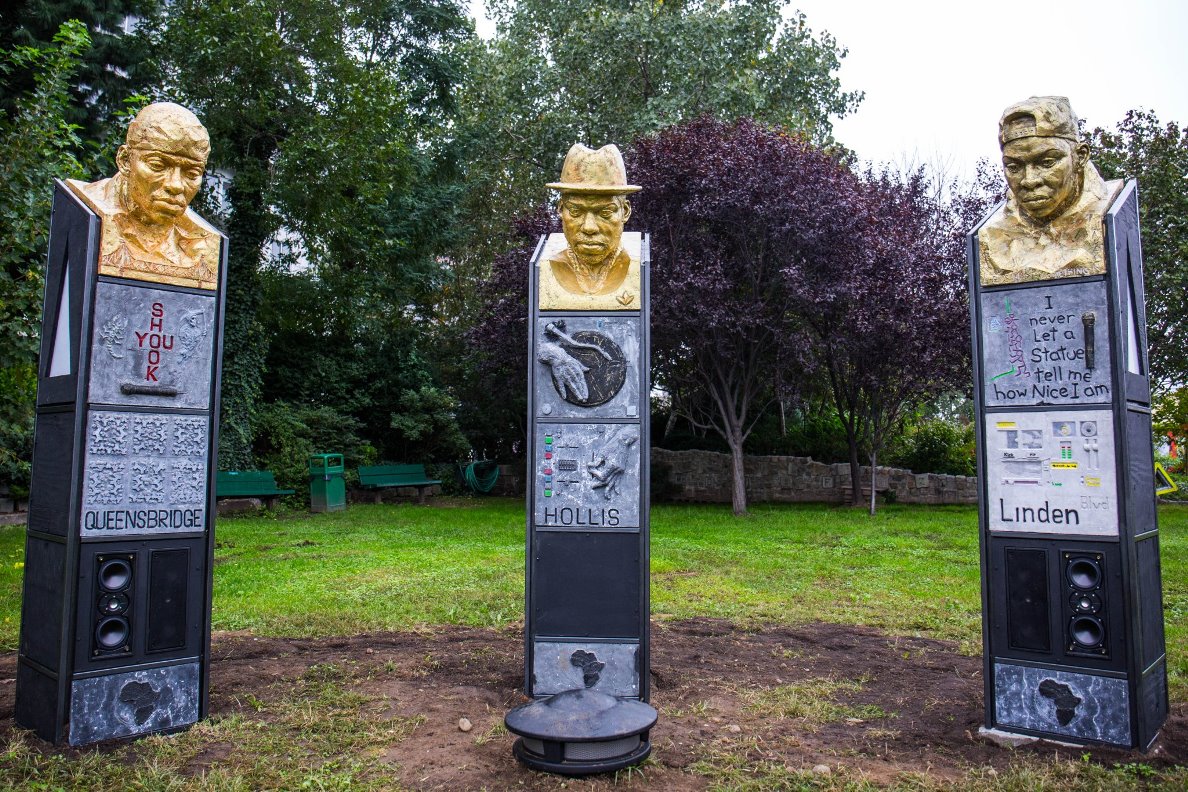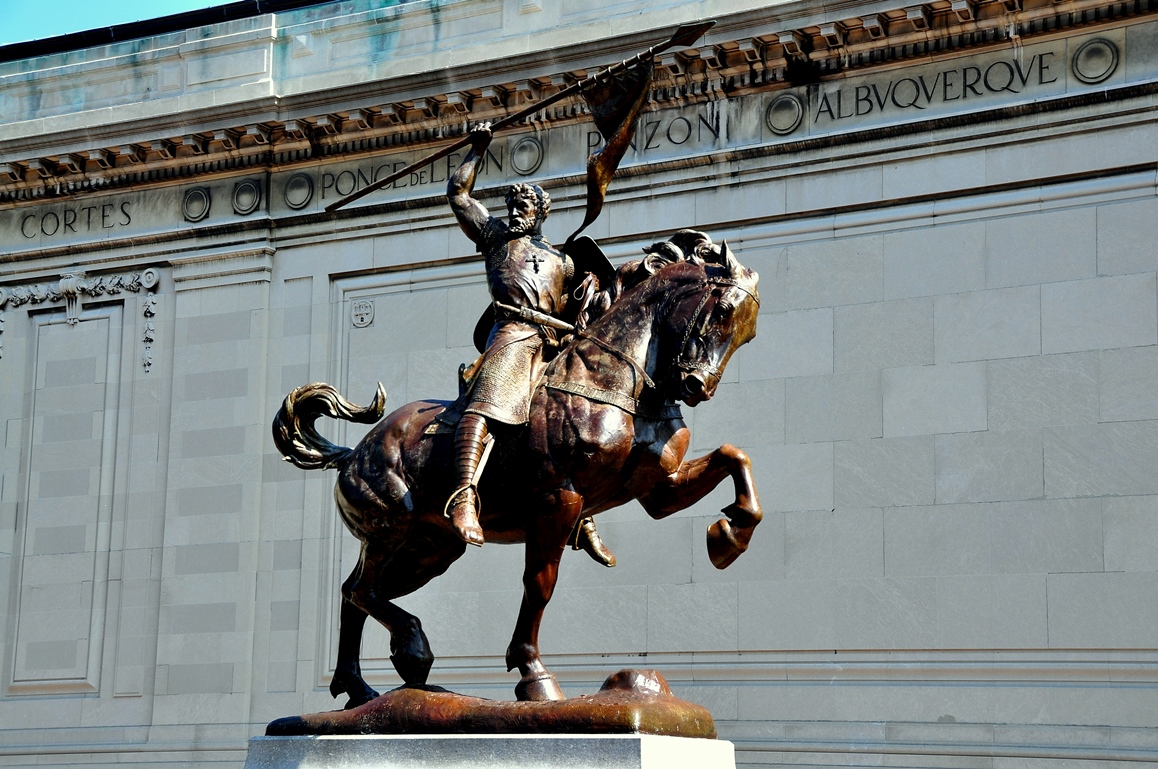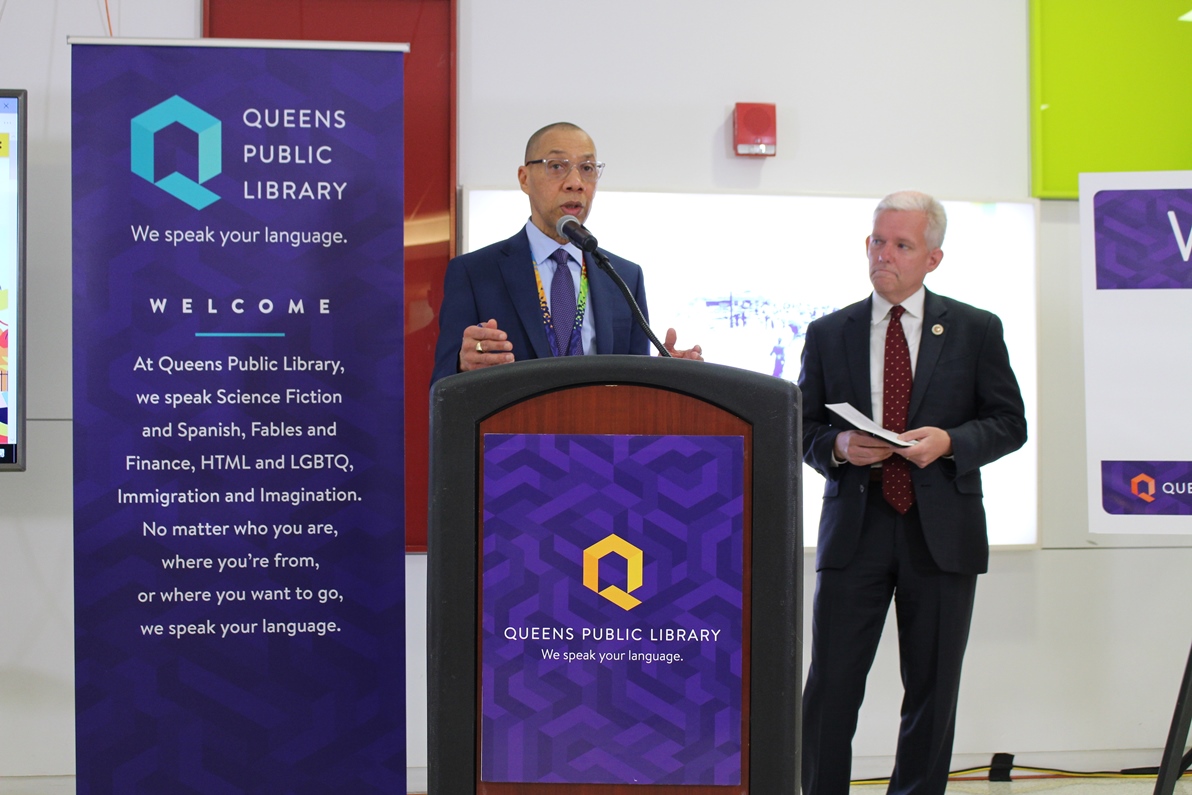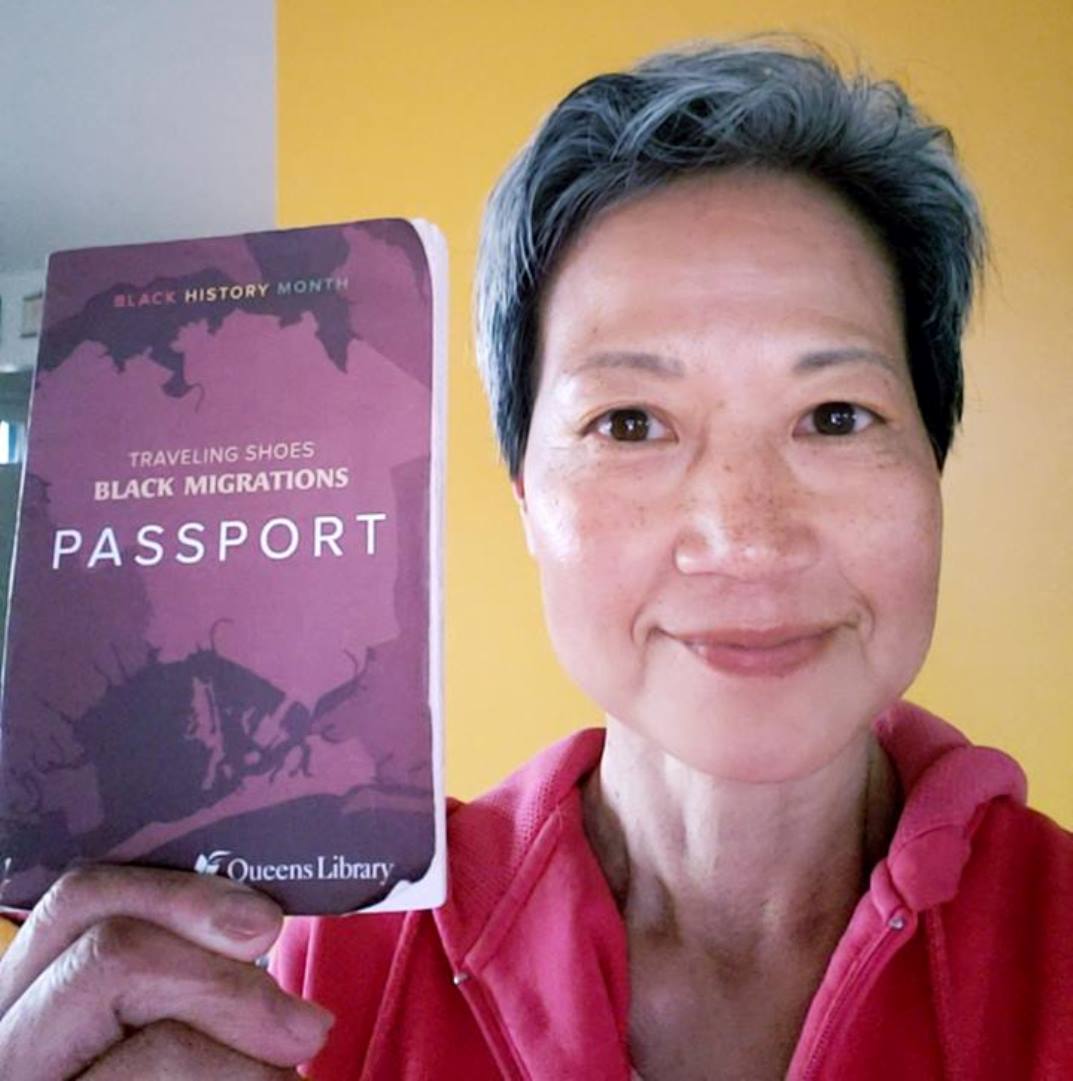“Growing up, my parents led me to believe that reading for leisure was a virtue. We went to the library once a week on Saturdays, especially during the period after we initially immigrated to the United States. Libraries offered escapism, rehabilitation, and answers in our new home,” says Wayétu Moore, author of the novel She Would Be King. Now, Moore goes to libraries when she has writer’s block, noting that the nostalgia empowers her.
This winter, Moore visited Queens Library for an author talk and participated in a Traveling Shoes: Black Migrations panel. “The author talk was an enlivening experience, because it was one of the first times I was able to speak in detail about my research for the novel,” she says. She describes the panel as “inspiring” and “a worthwhile dialogue on identity across the diaspora, and intraracial tensions that are slowly being unpackaged in recent decades.”
Moore is not only a novelist, but also the founder of a nonprofit publisher, One Moore Book. One Moore Book had its origins in Moore’s experience during college facilitating literacy workshops for elementary school students who couldn’t read. She discovered that bringing the students books with characters who looked like them increased their engagement with literature.
Her goal with One Moore Book is “to provide books to children who rarely see themselves in books.” These include children from countries with low literacy rates and also underrepresented cultures in the United States. She also hopes that the books give children here in the United States a window into countries they may never have the opportunity to visit.
Moore’s own novel is an underrepresented story in American literature—the fictional retelling of Liberian history through three characters with supernatural abilities who meet in Monrovia. It is a mix of history and magical realism, exploring the relationships between African-American settlers and indigenous tribes. The author moved to the United States when she was five years old and spent her formative years in Texas, but always felt that Liberia was a part of her. She rarely heard about it outside of her home. “That absence was resounding,” she says. When Moore began to write, one of the first places she traveled to was Liberia.
While working on She Would Be King, Moore perused the congressional testimonies of survivors of KKK trials in Rock Hill, South Carolina. These trials resulted in one of the migrations of free blacks from the American South to Liberia. She also read history, but she says the most valuable research was having conversations with the oldest Liberians she knows and asking them if they remembered stories told to them by their grandparents when they were young.
She is currently working on telling her own story by writing a memoir, a process that she says requires a constant battle with self-censorship. To inspire herself to keep going, she focuses on the purpose of her writing—to tell the kinds of stories that she never read. Her memoir tells the story of a woman who trafficked families across the Liberian border into Sierra Leone and other neighboring countries during Liberia’s civil war; this woman assisted Moore’s family.
Moore’s inspiration for her writing comes from authors such as Octavia Butler, Toni Morrison, Isabel Allende, Ben Okri, and Salman Rushdie. Some of her favorite contemporary authors are Zadie Smith, Chimamanda Ngozi Adichie, Julie Otsuka, Haruki Murakami, and Marlon James.
For her, reading is a process of discovery: “You think you know and understand the world. You think you know and understand yourself. Then you meet people in the pages of books that expand and contort that understanding, and there are few things that feel more beautiful than that." She encourages readers to “examine and re-examine what you understand as truth.”
She Would Be King is available now at Queens Library.
Photo of Wayétu Moore by Yoni Levy.

